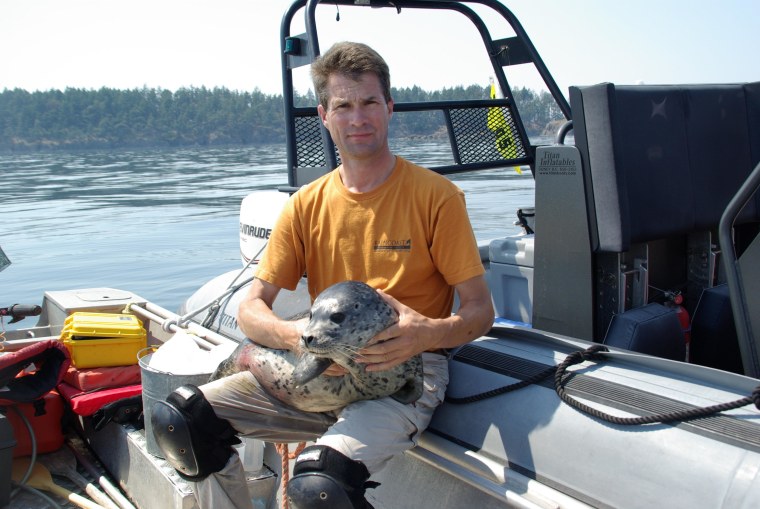Canada has been sending letters to government scientists notifying them that their jobs will be eliminated or affected by the closure of the country's marine pollution program -- but at least one isn't going without making some noise.
"It's perplexing that we face the loss of this program, given the 25,000 chemicals on the market and the ever-increasing threats posed by shipping and oil and gas exploration and development in temperate and Arctic waters," Peter Ross told msnbc.com. Ross is perhaps Canada's best known marine scientist for his work on identifying killer whales as the most contaminated marine mammals on the planet.
"As can be expected when one is told their position is being terminated, one is shocked and saddened," he added. "However, when told that the entire pollution research and monitoring program for Canada's oceans is being eliminated, I was speechless."
The program, which employs 75 staff, is set to be shut down by April 1, 2013, the Victoria Times Colonist reported.
"I cannot think of another industrialized nation that has completely excised marine pollution from its radar," Ross said.
The program is under the Department of Fisheries, which is shedding a total of 400 jobs. More than 600 others will be "affected." Of the some 1,000 jobs impacted, three quarters are with the Canadian Coast Guard.
A Department of Fisheries spokesperson told the Colonist that the cuts would produce $79 million in savings and that an advisory group from academia and the private sector would instead provide advice.
Watch the most-viewed videos on msnbc.com
Ross countered that those groups wouldn't be as accountable as government agencies are. "I can't think of any scientist or agency outside of government that is held to account on issues related to public health, the health of marine fish or mammals, or the identification of emerging pollution concerns in the coastal environment," he said.
Ross also published an opinion piece, titled "Silent Summer," on environmentalhealthnews.org. He concludes:
"It is with apprehension that I ponder a Canada without any research or monitoring capacity for pollution in our three oceans, or any ability to manage its impacts on commercial fish stocks, traditional foods for over 300,000 aboriginal people and marine wildlife.
"Canada's silence on these issues will be deafening this summer and beyond."
So what's the plan for Ross? "My personal and professional hope," he said, "is to transfer somehow to a university where I will be able to continue to work on ocean pollution priorities."
More world news from msnbc.com and NBC News:
- Scotland launches independence campaign with 007's support
- Runoff could take Egypt's voters on one of two very different paths
- Leftist tipped to be next Greek leader warns of 'Cold War' over austerity
- Japan's fugitive penguin caught after two months on the lam
- Why so glum? Germans struggle to find joy, poll suggests
- Tens of thousands of elephants likely killed last year, experts say
Follow us on Twitter: @msnbc_world
